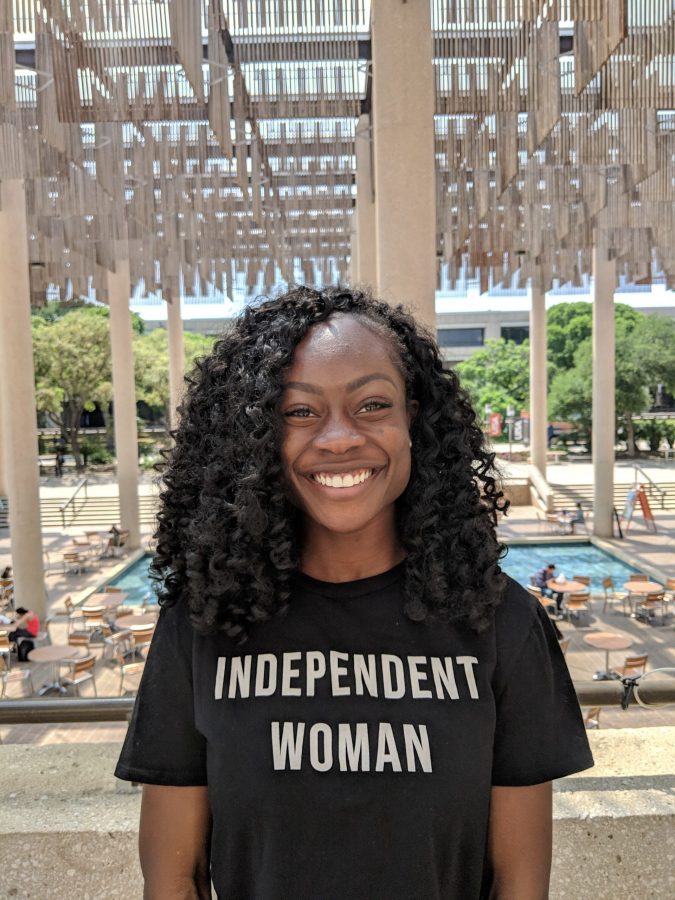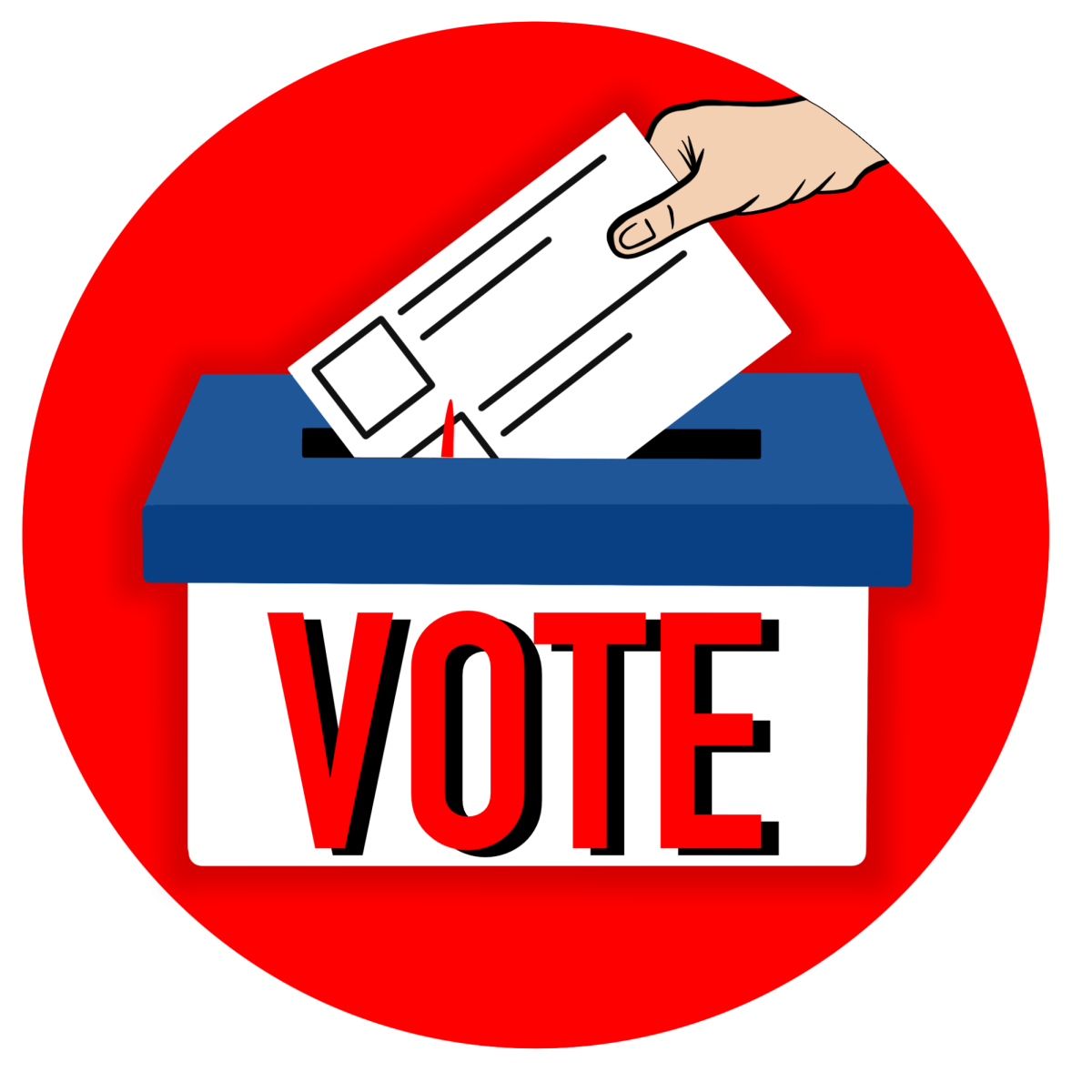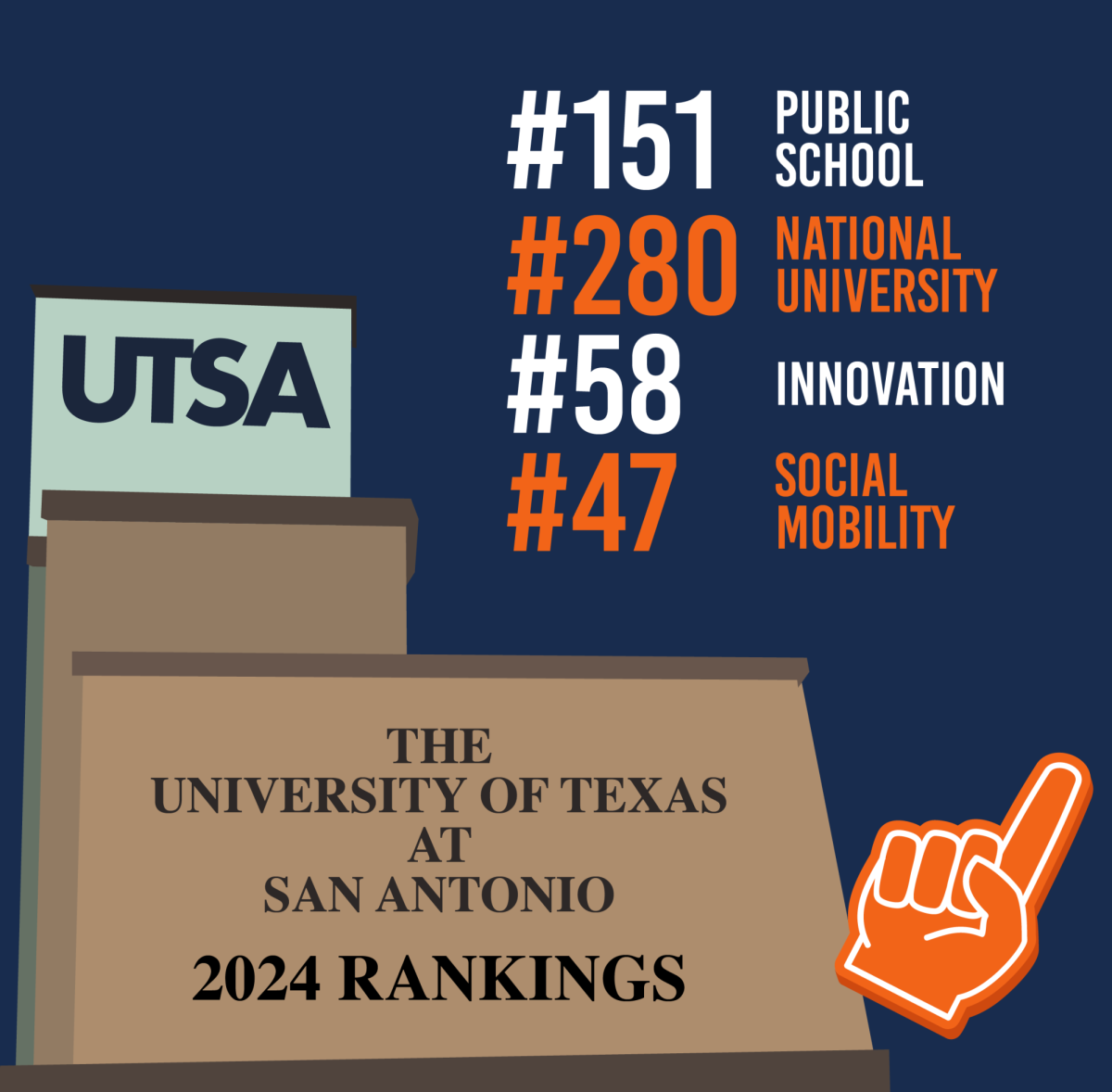This is Temilola (Grace) Adedipe. She is a junior biomedical major. Her passion for making a difference here at UTSA helps others to strive for success. This is her story.
“I was born in Nigeria, and then I came to the United States when I was about three and a half. When I first got here, I didn’t know how to speak English. All I spoke was my native tongue, Yoruba. Coming here, it was hard to acclimate to this culture. My family first moved to Maryland for about six months, and then we moved down to Houston, Texas when my dad got a job at Texas Children’s Hospital Medical Center. We moved to a fairly white neighborhood, so it was definitely different for my family. When I was in kindergarten, my teacher was calling role, and she said my first name, but she just wasn’t pronouncing it right. She then asked, “Where you from”, but she was poking at it. I already had so many girls look at me weird because of how my mom would do my hair. Not that my hair was weird, but to them it was different. There was this string that my mom would use to tie my hair in. So my hair was really long and stringy, but it was the culture. That’s what we did. When we came to America and I would go to school, it was a little hard. People always poked fun at my name, and so I thought that Grace would just be a safer way to go so that I didn’t run into any more trouble. Now, honestly, I might start going by my first name. I have fallen in love with my culture while being here and how different I am because of how I grew up.
My parents have always been in the medical field. They’ve always instilled that interest in me, and I’ve always liked science. I remember talking to my dad, going to work with him and getting to meet the pediatricians and the doctors. I’ve always had a passion for service. My dad is actually a pastor, and we have our own church in Houston. I just remember seeing how much he cared for other people, and how much he would always lend a hand. That is what instilled my passion of helping others. I was a child, but I still loved being with other kids. Even as I grew up, I still loved being with children and helping them out. When I got to high school, I got into this program called Health Science, and I started shadowing at different hospitals. I just had a thing with kids. This may be silly, but any time I’m at the store and I see a baby, I smile at them and they always smile back. It never fails. I just feel like that is a sign from God. Kids are just my specialty, and I just tend to bond with and understand them at a certain level. So, I always volunteered at the hospital and did my rotations and things like that.
When I was picking a college, I knew that I wanted to go into the medical field, but I wasn’t really sure what I wanted to major in. I was looking at two majors, and I saw a degree in biomedical engineering. I did my research, and it just fascinated me. I felt like I could really do something and make a real impact here. So, I picked my major and I needed to pick a school. I applied to a whole bunch of schools, and Cornell was my dream school. I got into all of them, and I was like, ‘Okay, now what school am I going to pick,’ so I started doing campus tours so that I could feel my surroundings. UTSA was actually the last campus I visited, and I didn’t get to visit Cornell because of the whole financial aid thing. It was so expensive. Literally the moment that I stepped out on to this campus, I was like, ‘Wow.’ I think it was the Sombrilla that really did it for me. It was so beautiful outside that day, and I just felt so happy. People were eating lunch together, studying, and just being together. On that day I visited, I didn’t see one person eating alone. I was like, ‘Wow. These people are actually making a connection to be friends and to connect with each other.’ That’s how I knew that I wanted to go here. Overall, the people that I’ve met here and the experiences that I’ve been a part of have really shaped me.
I’m a peer mentor. I believe it was the semester that I was running for Ms. UTSA. That was a very draining time for me. There is so much that goes into campaigning. I mean, it was amazing and it was a lot of fun, but I also wasn’t getting much sleep and I still had to be a peer mentor during this time. I’ve done peer mentoring for the past four semesters now. I was an OL, and I’ve just had little jobs on campus, but peer mentoring has been the one that I stuck with because I love it the most. I like the fact that I get to sit here, give someone advice, and help them because I remember my freshman year, and it wasn’t necessarily the best year. I was going through a break-up. It was tough, and I was feeling a little lost. That’s why I really like peer mentoring.
So, that semester, I was talking to one my students and she was telling me how she was experiencing some micro-aggressions in the classroom. I mentor engineering students, and most of my students are males and then I have maybe three or four females. She was telling me about how she would try to speak up, and people wouldn’t listen to her, or that they would just skip over what she had to say, and then when a guy would say it he would get praise for it. That just frustrated her, and I remember when I first got into the bio-medical engineering program and I was in this intro to biomedical engineering class. My major is not that big: I’m only graduating with about 38 people. In that class was about 100, and you could see all the people that wanted to do biomedical engineering, and I remember seeing a couple of my people in the class. That’s also one of the reasons why I chose UTSA: the diversity and inclusion that they praise. And so, I happened to see a couple of my people in the class, and I was like, ‘Okay, we are going to get through this.’ Then as I go on, I ended up being the only African-American female in my cohort. So as I’m trying to find people to work with in my labs, because biomedical engineering is group work, I just notice it. People weren’t being reciprocated. I remember experiencing those micro-aggressions, and when I was sitting down with her and as she was telling me everything, I remember just telling her, ‘Listen to me. They’re going to tell you that you’re not good enough. They’re going to give you a side-eye, but, at the end of the day, you need to know that you’re good enough, because you’re the only person that you’re competing against, not these people. I mean they can do as they want, but as long as you set your goals and fulfill your goals, then you can do what you want.’ That’s something that my mom always taught me.
My mom is a very, very hard worker, and she has done so much for my family. She taught me what it means to be that strong woman that doesn’t let anyone tear you down. That doesn’t let anybody tell you that you can’t do this because you look like this, because she has a strong accent. She moved here when she was in her late 20s, early 30s, and she has that strong accent. People will look at her like, ‘What are you even saying? I can’t hear you,’ and all those little microaggressions, and I was explaining this to my student. ‘They’re going to do these things, but you need to remember that you’re not doing this for them. You need to remember why you came here.’
Remembering that one day, I want to build hospitals in third-world and developing countries. Help them fight cancer, help them fight household diseases that their countries don’t even have the ability to handle. Knowing that I want to do that is what drives me. Not the fact that these people are looking at me a certain way. I just remember telling her that, and going through that with her, and walking her do that, and I just wished I had to have somebody to walk me through that when I was going through that. That was the moment that I was like, ‘Wow, I’m really making a change here at UTSA,’ and this was before I even won Ms. UTSA. I think that being Ms. UTSA is a great accomplishment, but I feel like there should be other things that I’ve done that have gotten to that point. In that moment, I was like, ‘Wow I’m really making an impact and I’m really actually helping these students.’
At the end of the semester, for peer mentoring, there is this sheet with all of our peer mentoring students’ evaluations on it. I read them, and they’re just really sweet and it’s just like, ‘Wow, I’m doing something here. I’m making an impact.’ I think that that’s always just what’s been my drive. I want to make my own special imprint on the world. People always ask what you want to do when you were little. They ask you what you want to do when you grow up. And I thought about it like this, ‘Well, how do I want to die? When I look at my life, what do I want to say that I have done?’ With that mind of service, with that mind of passion that my parents have instilled in me, it’s just always been:
I just want to help the world, and I want make my impact, and I want to help as many people as I can and do what I can to make sure that I leave this world helping somebody.
That’s just what I try to do almost every day.”






